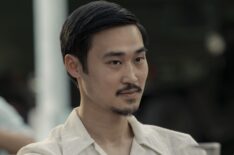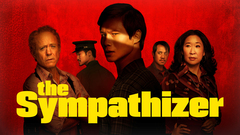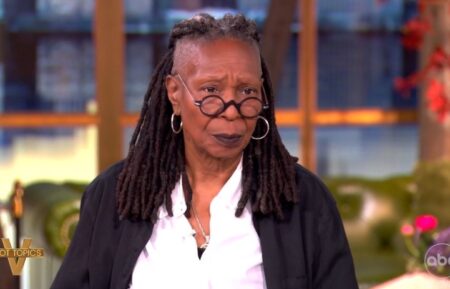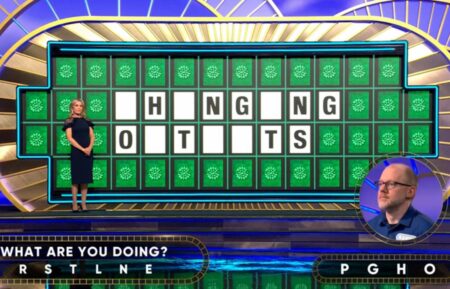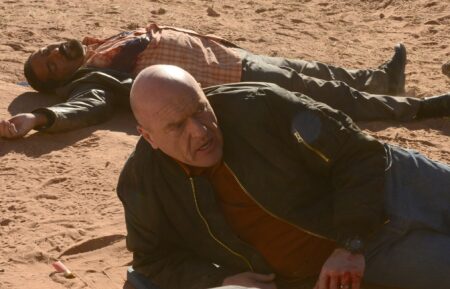‘The Sympathizer’ Boss Explains That Surprise Robert Downey Jr. Character — And Will There Be a Season 2?
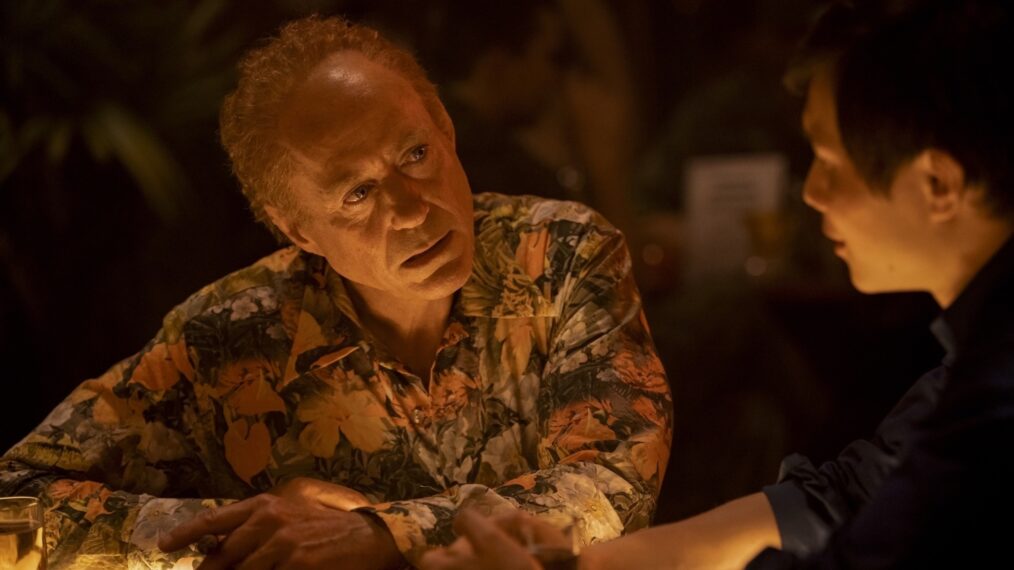
Spoiler Alert
[Warning: The following contains MAJOR spoilers for The Sympathizer finale.]
The Sympathizer delivered one last Robert Downey Jr. character in its grueling finale on Sunday, May 26. The HBO Vietnam War satire has been using the Oscar winner to represent the American, patriarchal white male archetype throughout the seven-episode season. This was a narrative devise devised by director Park Chan-wook, and the fifth and final RDJ character in The Sympathizer connected them all together in a way viewers may not have expected.
Sandra Oh previously told TV Insider that having Downey, known best for playing Iron Man/Tony Stark — a weapons manufacturer turned superhero — was “bold” and intelligent and “meta.” He plays CIA agent Claude, Professor Hammer, politician Ned Godwin, and Hollywood director Nikos Damianos, all of whom use Vietnamese people for their own gain in their own twisted ways, whether that be profiting off of war through government action or through the Hollywood movie-making machine. The last character was different from all of them, but was ultimately the reason why the Captain (Hoa Xuande) sees all these white men as the same.
The fifth character came to the Captain in a torture-induced hallucination in the reeducation camp ran by Man (Duy Nguyen), who was revealed to be the Commissar in the final episode. As the Captain’s past memories came flooding in as he endured extreme physical pain, he recalled his father, the French priest played by Downey whom he only met once as a child. The Captain’s mother worked for the priest while he was on a mission in Vietnam. Executive producer and writer Don McKellar tells TV Insider how the final RDJ character ties all the previous four together.
“The idea of having Robert play all those characters came up in early discussions when we were talking about the fact that there’s these recurrent types in the Captain’s story, these older, patriarchal, white mentor figures who help the Captain but are also antagonistic and cause him trouble,” McKellar says. “They’re all similar in a way in their relationship to the Captain, even though their ideology is very different, their disciplines, their jobs are very different.”
In part, Downey played all of these characters to “convey the complicity” of all these men in the horrors of the story. “They’re all commingled.”
“Chan-wook came up with the idea of having a single actor play all those characters, and then after talking with Robert, we thought sort of beyond that. Why are they all similar? They’re all similar because they all represent aspects of the colonial legacy,” McKellar continues. “And so we decided to make them literally part of his heritage. [The Captain’s] father was a colonizer, and he’s projecting that. Whenever he sees a sort of white patriarchal character, he sees them as tentacles of his father.”
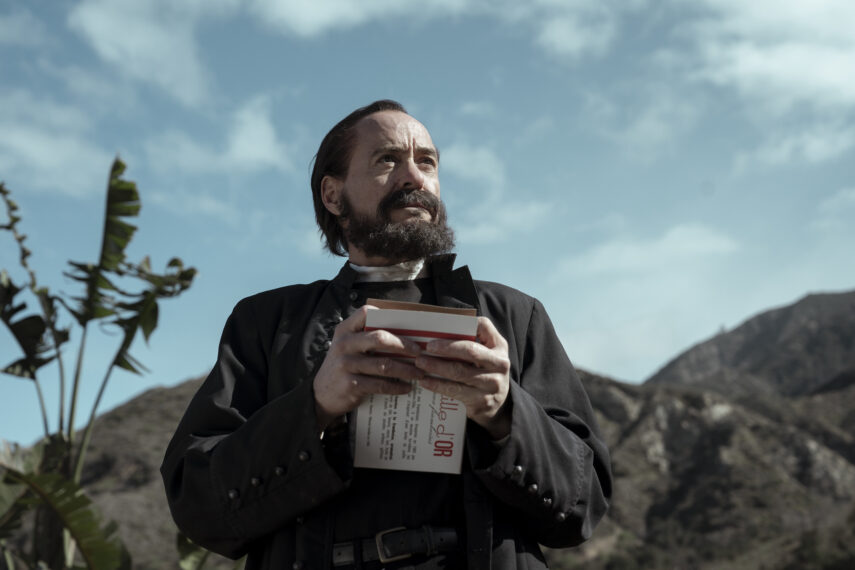
Robert Downey Jr. as the French priest in The Sympathizer finale (Hopper Stone / HBO)
The Captain eventually escapes the reeducation camp with Man’s help and Bon (Frank Nguyen Khan) by his side, and the series ends with the two riding away on a boat while the Captain looks back on a group of ghosts in the shallows and on the shoreline. It’s a mournful end for a character who was just tortured into realizing that he’s no war hero and was questioning, like his brethren, if the war was even worth it. The Northern Vietnamese forces won the country’s freedom from French and American colonizers, but they failed to build their communist utopia after. The Captain is leaving Vietnam a ghost of his former self, but one that can finally move on.
McKellar explains that final shot: “We did a lot of research into the Vietnamese conception of ghosts, which are very prevalent in Vietnamese folklore and how they see them as part of their lives, like a living presence, not as vengeful spirits or anything like that, but as the memory with you still present in their lives. He sees the ghosts, as he does in the book, of the people he’s killed, and we wanted the Captain to get beyond his guilt and beyond his personal hangups and see the bigger picture, see all the restless spirits that have been displaced by this war and by the trauma of their colonial history so by the end, he’s able to see that it’s not just his guilt and his sins. He can now see the spirits of his people present and now move beyond that and see a future for them and for himself.”
“The feeling for him is positive,” McKellar continues. “There is some sort of release, some sort of liberation. It’s mournful because he’s finally able to see objectively what everyone’s gone through and that he didn’t have the answer, and that his side was just as culpable. And that they were all sucked up into this machinery of war and colonialism and there were no winners … He’s able to face the trauma of his people in a real way. It’s necessary for moving on.”
Could there be a second season of The Sympathizer? HBO has always billed it as a limited series, but McKellar says he would “love to” continue the story — and there’s source material to support it. Viet Thanh Nguyen published The Committed, the sequel to 2016’s The Sympathizer, in 2021.
“There is a second book, so there’s that. This was hard. It was hard to get this together, but I would love to [make another season]. Definitely like the Captain, I feel like there’s space to move on. The story definitely continues … I haven’t had any official discussion with HBO.”
The Sympathizer, Available now, Max
From TV Guide Magazine
Crime, Comedy & Convenience Stores: Unwrapping Hulu's 'Deli Boys' With the Cast
Cupcakes, corndogs…and cocaine?! Two brothers find themselves in a hilarious pickle when they inherit an unseemly bodega biz in Hulu’s new comedy Deli Boys. Find out how The Sopranos and Real Housewives of Orange County influenced the cast. Read the story now on TV Insider.

